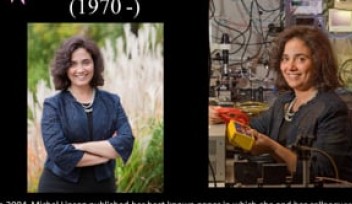“Building, Using, and Teaching The Tree of Life” by Prof. Douglas Soltis and Prof. Pamela Soltis
ABSTRACT:
With more than 2 million species already described, and many more millions undiscovered or extinct, the size of the Tree of Life is immense. Throughout much of human history our species has felt a deep connection to the other species on our planet. The Tree of Life has now emerged as a grand symbol and organizing principle for biodiversity, one that deftly threads scientific and cultural meaning, providing a unique connector to the public. Yet it required over 150 years from the time of Darwin who referred to “The Great Tree of Life” in the mid 1800s to actually build the first tree of all life in 2015. Put simply, building huge family trees of species is very hard, rivaling the most difficult problems in physics and astronomy. Thus, building the first tree of all named life (all 2.3 million species) was a true “grand challenge” or a “moonshot” for biology. Knowledge of the Tree of Life is also crucial for human survival and well-being – relationships have predictive value, with downstream practical benefits that include the discovery of medicines, crop improvement, improved approaches to conservation, and a better understanding of species’ response to climate change. Yet the Tree of Life is under immense threat in the Anthropocene. We are therefore working on several methods of engaging the public on the importance of biodiversity via the Tree of Life metaphor. No matter what scale and medium, the storytelling will convey why knowledge of the Tree of Life is important for human well-being and survival.
SHORT BIOGRAPHY of Prof. Douglas Soltis
Douglas Soltis is a Distinguished Professor in the Florida Museum of Natural History and Department of Biology at the University of Florida. He studies plant evolution using genomic and informatic approaches; interests include genome doubling (polyploidy), genome evolution, building the tree of life, and angiosperm diversification. Soltis has reconstructed relationships among major lineages of flowering plants. With others, he proposed a new classification for angiosperms (APG system). He worked with Chinese collaborators to build a tree of life for the plants of China. Soltis is part of a group that built the first-draft tree of life for all 2.3 million named species on Earth. He and others clarified the ancestral angiosperm via the Amborella Genome Project. He has also developed Tragopogon (Compositae) as a model for the study of polyploid evolution. He has over 500 publications, including papers in Proceedings of the National Academy of Sciences USA, Science and Nature; and 8 books. He is a member of the National Academy of Sciences and American Academy of Arts and Sciences.
Several of these areas are discussed in the following link:
https://www.floridamuseum.ufl.edu/soltis-lab/doug-soltis/
SHORT BIOGRAPHY of Prof. Pamela Soltis
She is a Distinguished Professor and Curator in the Florida Museum of Natural History and Department of Biology at the University of Florida. A member of the National Academy of Sciences, she focuses on evolutionary patterns and processes that have generated the Tree of Life of plants. She is passionate about the importance of the Tree for human well-being and sharing the grandeur of the Tree with college students and the public.
Copyright OIST (Okinawa Institute of Science and Technology Graduate University, 沖縄科学技術大学院大学). Creative Commons Attribution 4.0 International License (CC BY 4.0).














